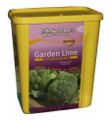Calcium carbonate
What is it?[edit]
Calcium carbonate (CaCO3) is a chemical compound. It is commonly used medically as a calcium supplement or as an antacid. It is also a common substance found as rock (like marble) in all parts of the world and so is often found in nature dissolved in water which flows over these rocks. It is therefore the principal cause of hard water.
CaCO3 is the main building block of seashells and the shell of snails and all shrimps. So Coral sand is mostly CaCO3.
Sources[edit]
This compound is sold over the counters at shops for health reasons, cooking or for hardening water for swimming pools. Gardening shops sell 'Garden Lime' or Limestone in the form of fine powder for mixing with soil to increase the pH.
It is used in aquariums as a principal method to increase the general hardness (GH) of the water (and to a degree KH). Many plants, aquatic species require a level of hardness in the water to build their bones and external body parts.
For example aquatic snails need a GH of at least 8-10d (142.9-178.6ppm) to stop their outer casing from dissolving into the water and killing the animal.
CaCO3 is only slowly soluble in water and as it dissolves, KH and GH increases. So it can take a few days to dissolve depending on the pH of the water. As it dissolves, pH increases therefore reducing the dissolving rate. (If the pH is above 7 then the dissolve rate will be slow). The surface area of the material will determine the speed of dissolving. So smaller pieces dissolve faster.
- When you add CaCO3 to water, it reacts with any acids present and binds with free H+ ions to form Calcium bicarbonate, or Ca(HCO3)2 and thus reduces the count of free H+ ions which raises the pH.
Types available[edit]
In order of dissolving rate. Fastest first.
Limestone Powder, Indigestion tablets, Coral Sand, Coral Gravel, Cuttle Bone, Sea Shells.
Notes[edit]
- See Calcium bicarbonate or Dolomite for an alternative material.
- See the GH page for more on 'General Hardness'.
- See the KH page on 'Karbonate Hardness'.
Raising GH[edit]
Two teaspoons (about 4 grams) of calcium carbonate per 189 Litres (50 US G.) of water will increase both General Hardness (GH) and Carbonate Hardness (KH) by approximately 1 degree.[1]


